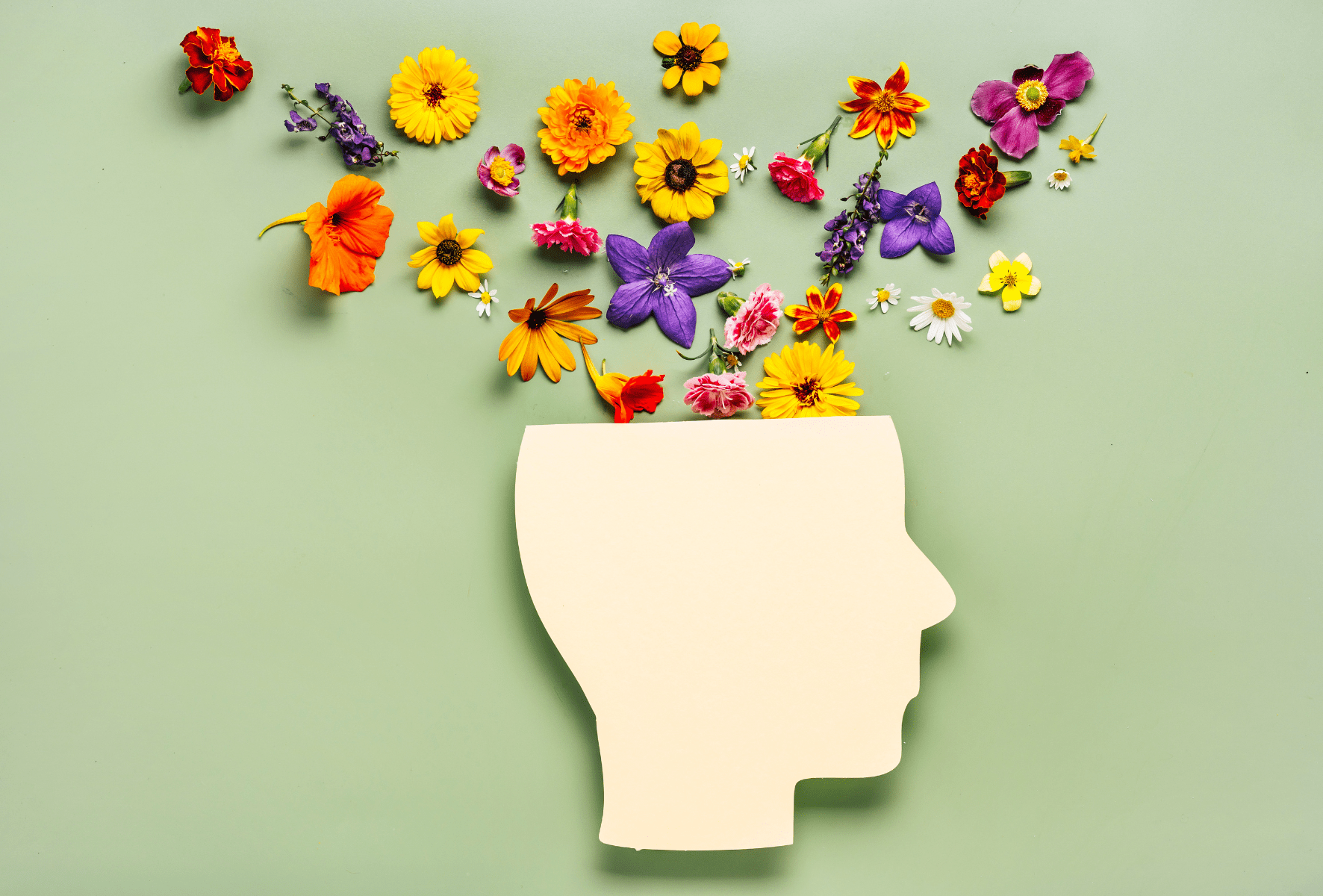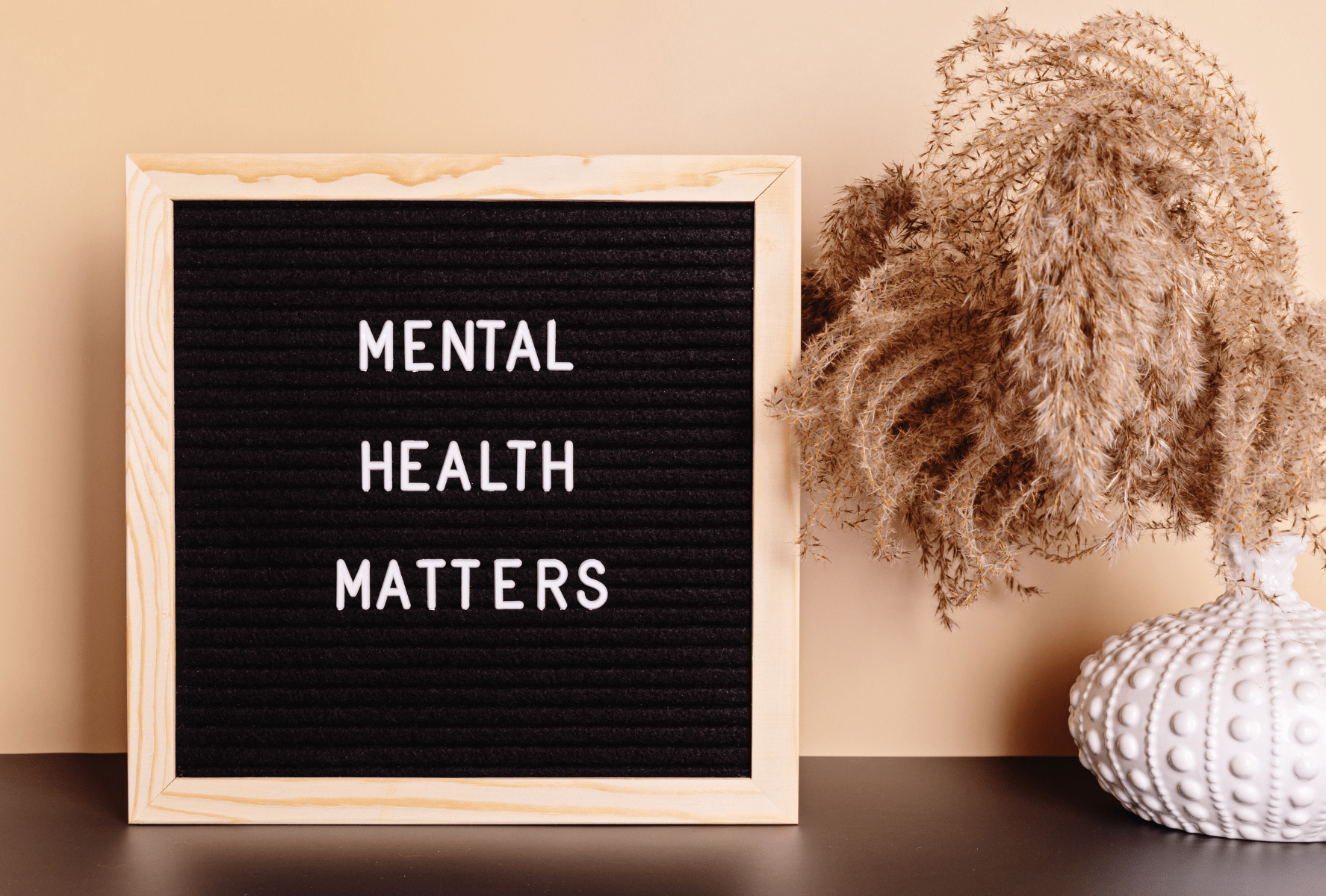
The Mind-Gut Connection: Exploring How Gut Health Affects Mental Well-Being
Hey there! Have you ever felt a “gut feeling” when making a decision, or experienced “butterflies in your stomach” when anxious? These sayings aren’t just metaphors; they hint at the profound link between your gut and your mental well-being. Welcome to the fascinating world of the mind-gut connection, where the health of your gut influences not only your physical health but also your mental and emotional state.
In this article, we’ll explore how your gut health can impact your mental well-being, provide you with insights on how to nurture both a happier and healthier you, and delve deeper into this captivating relationship. So, get ready to discover the secrets of a balanced gut-brain axis and how it can be a game-changer in your overall well-being. Your gut is not only your “second brain” but also a key player in your emotional and psychological equilibrium.
1. The Gut-Brain Axis: A Two-Way Street
Let’s start our journey by understanding the dynamic relationship between your gut and your brain. This connection operates through the gut-brain axis, a bidirectional communication system involving your central nervous system (CNS) and your enteric nervous system (ENS), which is often referred to as your “second brain.” Your CNS includes your brain and spinal cord, while your ENS consists of a complex network of neurons that govern your gut’s function.
The gut-brain axis enables your gut to send signals to your brain and vice versa. For example, when you’re stressed, your brain can send signals to your gut, leading to symptoms like butterflies or discomfort. On the flip side, when your gut microbiota (the trillions of microorganisms living in your digestive tract) are imbalanced, it can send signals to your brain, potentially affecting your mood and mental well-being.
2. Gut Health and Mental Health: The Connection
Now that we’ve established the existence of the gut-brain axis, let’s delve into the connection between gut health and mental health. Research in the emerging field of psychobiotics suggests that the balance of your gut microbiota can significantly impact your mood and mental well-being.
Imbalances in your gut microbiota, often referred to as dysbiosis, have been linked to various mental health issues, including anxiety, depression, and even neurodegenerative conditions like Alzheimer’s and Parkinson’s disease. When the diversity and composition of your gut microbiota are healthy, it contributes to the production of essential neurotransmitters like serotonin and dopamine, which play pivotal roles in regulating mood and emotions.
In essence, an imbalanced gut can lead to an imbalanced mind. The good news is that by nurturing your gut health, you can positively influence your mental well-being.
3. Probiotics and Prebiotics: Your Allies for a Healthy Mind and Gut
Probiotics and prebiotics are your allies in the quest for a healthy mind and gut. Probiotics are live microorganisms that, when consumed in adequate amounts, confer health benefits. They can help restore and maintain a balanced gut microbiota, potentially alleviating symptoms of anxiety and depression. Common sources of probiotics include yogurt, kefir, sauerkraut, and kimchi. You can also find probiotic supplements that contain specific strains beneficial for mental health.
Prebiotics, on the other hand, are indigestible fibers that serve as nourishment for the beneficial bacteria in your gut. By including prebiotic-rich foods like garlic, onions, asparagus, and bananas in your diet, you create an environment where probiotics can thrive.
4. Eating for Gut and Brain Health: The Mindful Diet
A mindful diet is the cornerstone of a healthy gut-brain axis. It involves making conscious food choices that support your gut microbiota while nourishing your brain. Here are some dietary strategies to consider:
- Fiber-Rich Foods: A diet high in fiber from fruits, vegetables, and whole grains provides prebiotics, which feed your beneficial gut bacteria. This can enhance your gut health and, subsequently, your mental well-being.
- Omega-3 Fatty Acids: Foods rich in omega-3 fatty acids, like fatty fish (salmon, mackerel) and flaxseeds, have anti-inflammatory properties that benefit both your gut and brain.
- Fermented Foods: Include fermented foods like yogurt, kefir, kimchi, and miso in your diet. These are excellent sources of probiotics that promote gut health.
- Polyphenol-Rich Foods: Polyphenols, found in foods like berries, dark chocolate, and red wine (in moderation), have antioxidant properties that can help maintain a balanced gut microbiota.
- Hydration: Don’t forget the importance of staying hydrated. Water is essential for overall health, including the proper functioning of your gut.
5. Stress, Sleep, and Exercise: Supporting Your Mental Well-Being through Lifestyle Choices
Your lifestyle choices are just as critical as your diet when it comes to nurturing your mind-gut connection. Here’s how these factors influence your mental well-being:
- Stress Management: Chronic stress can disrupt the balance of your gut microbiota and trigger inflammation, potentially contributing to mental health issues. Practicing stress management techniques like meditation, yoga, and deep breathing can be highly beneficial.
- Quality Sleep: Inadequate or poor-quality sleep can negatively impact your gut microbiota and exacerbate stress. Aim for seven to nine hours of quality sleep per night to support both your gut and mental health.
- Regular Exercise: Physical activity can positively influence your gut microbiota. Regular exercise is associated with increased microbial diversity and the production of beneficial metabolites. It can also help reduce inflammation and improve mood.
In our final section, we’ll provide practical tips for nurturing your mind-gut connection to support your mental well-being.
6. Nurturing Your Mind-Gut Connection: Practical Tips
To nurture your mind-gut connection, consider implementing these practical tips into your daily life:
- Mindful Eating: Embrace mindful eating as a daily practice. Pay attention to what you eat and how it makes you feel. This heightened awareness can help you identify foods that genuinely benefit your gut and mental health. When you eat with intention, you develop a deeper connection to the process of nourishing your body. This practice not only supports digestive health but also encourages a more conscious relationship with the food you consume.
- Stay Hydrated: Proper hydration is essential for digestion and overall gut health. Drinking an adequate amount of water throughout the day keeps your digestive system functioning optimally. Water helps break down food, absorb nutrients, and move waste products through your intestines. It’s a simple yet powerful step in maintaining your mind-gut equilibrium.
- Limit Processed Foods: Highly processed foods are often devoid of the nutrients your gut microbiota thrives on. By reducing your consumption of these items, you allow your gut to flourish with the beneficial elements it needs. Whole, unprocessed foods provide essential vitamins, minerals, and fiber that support both your gut and mental health. Opt for fresh fruits, vegetables, whole grains, and lean proteins to nourish your body and mind.
- Fermented Foods: Make probiotic-rich foods a regular part of your diet. Options like yogurt, kefir, kimchi, sauerkraut, and kombucha introduce beneficial bacteria into your gut. These probiotics help balance your gut microbiome and improve digestive health. With a happier gut, you’re more likely to experience a positive impact on your mood and cognitive function.
- Stress Reduction: Incorporate stress reduction techniques into your daily routine. Chronic stress can disrupt the harmony between your mind and gut, so it’s essential to find effective ways to manage it. Activities like mindfulness meditation, yoga, deep breathing exercises, and spending time in nature can significantly reduce stress levels. A calmer mind fosters a healthier gut-brain axis.
- Sleep Well: Prioritize quality sleep to maintain optimal gut and mental health. A good night’s sleep is crucial for the regeneration and repair of your body, including your gut. Poor sleep patterns can lead to imbalances in your gut microbiome and may contribute to mood disorders. Ensure you get the recommended amount of sleep for your age group to support a well-functioning gut-brain axis.
- Regular Exercise: Regular physical activity plays a significant role in supporting a balanced gut microbiota and promoting better mental well-being. Exercise can enhance the diversity of your gut bacteria and reduce inflammation, which can positively influence your mood and cognitive function. Aim for at least 150 minutes of moderate-intensity aerobic activity each week, along with muscle-strengthening exercises on two or more days.
By nurturing your mind-gut connection through a mindful diet, lifestyle choices, and a holistic approach to well-being, you can significantly impact your mental health for the better. The journey to a healthier mind and gut begins with small, manageable steps. So, are you ready to take charge of your mental well-being and foster a harmonious relationship between your gut and brain? You’ve got this!
Conclusion
In conclusion, your mind and gut are deeply interconnected through the intricate system known as the gut-brain axis. Understanding this dynamic relationship can empower you to take charge of your mental well-being in ways you might not have imagined. By focusing on the health of your gut through diet, lifestyle choices, and a holistic approach to wellness, you can positively influence your mental health.
Ultimately, nurturing your mind-gut connection is a journey that begins with small, manageable steps. With dedication and a proactive approach, you can create a positive feedback loop between your gut and brain, leading to enhanced mood, reduced stress, and improved overall mental health. The power to foster a harmonious relationship between your gut and brain is in your hands. Are you ready to embark on this journey to well-being? Your mind and gut will thank you for it.

References:
- The surprising link between your microbiome and mental health. (n.d.). https://www.optum.com/health-articles/article/healthy-mind/surprising-link-between-your-microbiome-and-mental-health/
- Achieving gut health -- and how it supports your Overall Well-Being. (2021, November 16). University Hospitals. https://www.uhhospitals.org/blog/articles/2021/11/achieving-gut-health-and-how-it-supports-your-overall-well-being
- Bratskeir, K. (2023, June 13). How To Improve Your Gut Health, According To Research. Forbes Health. https://www.forbes.com/health/body/how-to-improve-gut-health/
- Department of Health & Human Services. (n.d.). Gut health. Better Health Channel. https://www.betterhealth.vic.gov.au/health/healthyliving/gut-health
- Digital, C. (2023, June 22). The link between gut health & mental health. Northeast Digestive. https://www.northeastdigestive.com/blog/the-link-between-gut-health-mental-health/
- Goess, M. (2022, January 24). The link between gut health and emotional wellbeing. Sönd. https://www.sondskin.co.uk/blogs/discover/the-link-between-gut-health-and-emotional-wellbeing
- GSGIadmin. (2023, January 16). The Importance of Maintaining Gut Health For Overall Wellbeing. Granite State Gastroenterology. https://granitegastro.com/the-importance-of-maintaining-gut-health-for-overall-wellbeing/
- Matt. (2023, May 3). Gut Health: A Cornerstone of Well-Being - NCC. NCC. https://customcompounding.com.au/gut-health-a-cornerstone-of-well-being/
- Nutritionist, S. K. a. T. (2023, May 29). The role of the digestive health in overall well-being. Donat. https://www.donat.com/the-role-of-the-digestive-health-in-overall-well-being/
- Robertson, R., PhD. (2023, April 3). How does your gut microbiome impact your overall health? Healthline. https://www.healthline.com/nutrition/gut-microbiome-and-health
- Staff, K. H. (n.d.). The Gut-Brain Connection: Understanding how gut health impacts mental health. https://www.kentri.org/blog/the-gut-brain-connection-understanding-how-gut-health-impacts-mental-health
- The importance of gut health | Parkview Health. (n.d.). Parkview. https://www.parkview.com/blog/the-importance-of-gut-health
- The surprising link between your microbiome and mental health. (n.d.). https://www.optum.com/health-articles/article/healthy-mind/surprising-link-between-your-microbiome-and-mental-health/
- Webadmin. (2023, August 31). A happy gut for a happy mind: improving mental health naturally. Lotus Medical Centre. https://www.lotusmedicalcentre.com.au/a-happy-gut-for-a-happy-mind-improving-mental-health-naturally/
- Your Gut Influences Your Overall Mental & Physical Wellbeing; Eat These 8 Foods In Rotation Daily. (n.d.). NDTV.com. https://www.ndtv.com/health/your-gut-influences-your-overall-mental-physical-wellbeing-eat-these-8-foods-in-rotation-daily-4026091
